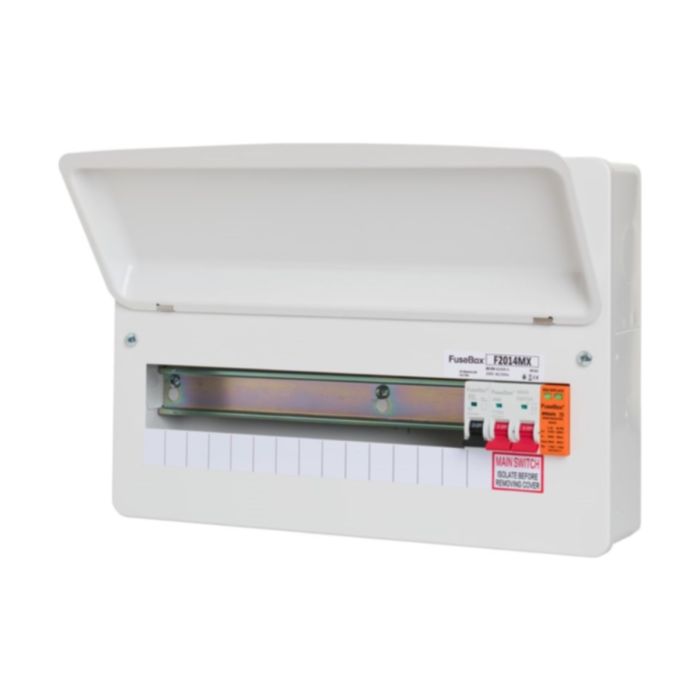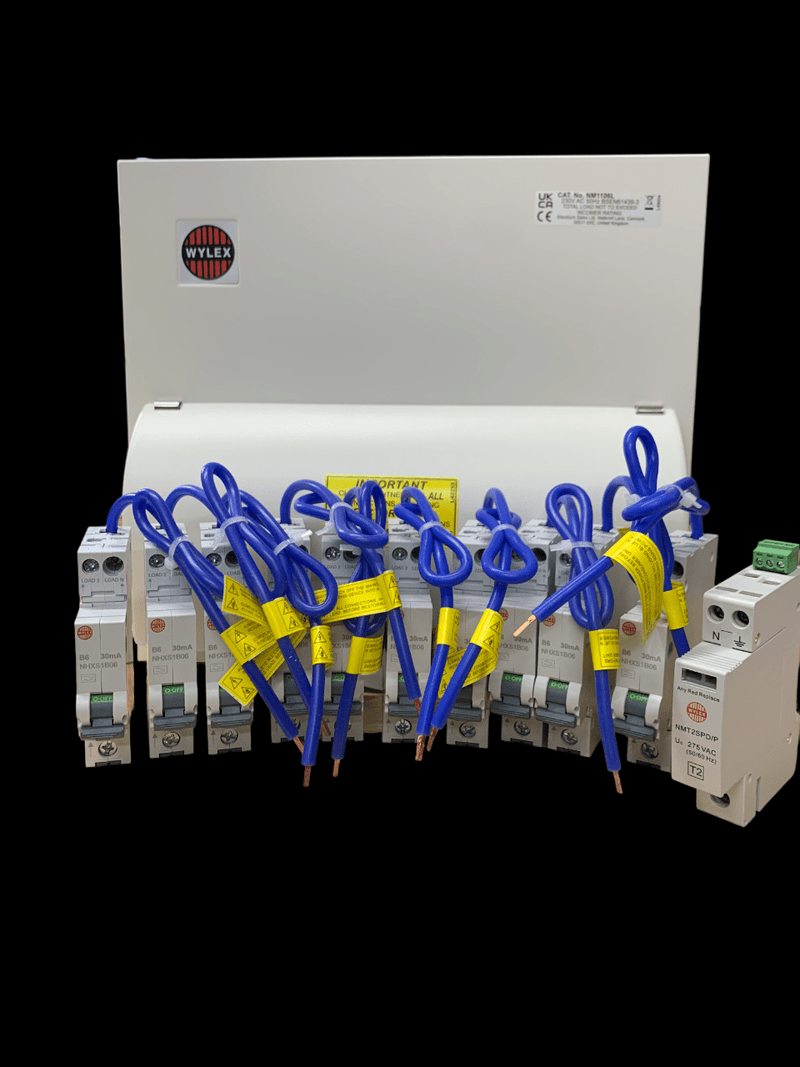The Significance of Setting Up Reliable RCBO CONSUMER UNITS in Your Property
The Duty of Customer Units in Effective Power Administration Equipment
Customer systems are essential to efficient power administration systems, offering as the main distribution factors for electrical power within frameworks. The arrival of wise modern technologies has even more enhanced their functionality, allowing for real-time information tracking and nuanced energy consumption evaluation.
Comprehending Consumer Devices

Recognizing the duty of customer devices begins with identifying their important feature in protecting electric systems. By separating mistakes within certain circuits, customer systems stop prevalent blackouts and potential fire threats. This isolation is achieved through using circuit breakers that journey or integrates that impact when a fault is detected, consequently cutting off the electric flow to the impacted circuit.
Furthermore, customer devices promote the orderly distribution of power, boosting the performance of energy use. They permit the organized monitoring of electrical lots, which can be especially vital in industrial and industrial setups where demand can fluctuate dramatically. Properly conserved consumer units contribute to the longevity of electric systems and help in lessening downtime brought on by electric failings, eventually supporting the smooth operation of energy-dependent centers.
Smart Technologies Integration

An essential benefit of wise consumer units is their ability to take advantage of progressed formulas and machine discovering for predictive analytics. This permits preemptive changes based upon usage patterns, weather report, and other variables, substantially enhancing general performance. In addition, wise consumer systems promote need response programs, where power usage can be dynamically readjusted throughout optimal periods to support the grid and decrease costs.
The integration of renewable energy sources, such as solar and wind, is additionally streamlined with smart customer systems. By smartly taking care of the intermittency of these resources, these devices make certain a dependable and well balanced power supply. Additionally, clever customer devices boost individual involvement by supplying comprehensive insights and remote capabilities through mobile applications, promoting a much more aggressive strategy to power preservation and sustainability.
Surveillance Energy Consumption
Building on the capacities of clever innovations assimilation, checking energy usage ends up being an essential emphasis within power monitoring systems. Efficient surveillance serves as the structure for identifying power inefficiencies and applying corrective steps. By leveraging advanced metering infrastructure (AMI), real-time data on energy usage can be gathered at granular levels, giving important understandings right into you can check here usage patterns and peak need durations. This data-centric approach makes it possible for both customers and power supervisors to make informed choices targeted at lowering waste and improving overall effectiveness.
Smart meters and Net of Points (IoT) gadgets play a pivotal role in this tracking procedure. These tools can track power use in real-time, transferring data to central systems for analysis.
The integration of these technologies not just encourages customers with comprehensive info concerning their energy usage however also sustains energy suppliers in taking care of lots distribution extra properly. Ultimately, continuous and specific surveillance is indispensable for achieving energy efficiency, price savings, and sustainability goals within power monitoring systems.
Optimizing Device Usage

One effective technique involves recognizing height and off-peak hours to shift energy-intensive tasks, such as laundry or dishwashing, to times when energy demand is lower. This not just reduces pressure on the grid however likewise exploits on lower energy tolls. Furthermore, integrating equipment learning formulas enables for anticipating maintenance, their website making sure devices operate at optimum efficiency and extending their lifespan.
Power monitoring systems can additionally incorporate user-specific preferences and behaviors to tailor device usage schedules. For example, smart lighting systems can change brightness based on tenancy and all-natural light availability, while HVAC systems can preserve go to these guys convenience degrees without extreme energy usage.
Promoting Sustainability
Promoting sustainability within power monitoring systems involves not just boosting efficiency however also promoting ecologically accountable practices. Customer systems are essential to this process, as they supply real-time information and control devices that allow individuals to keep an eye on and decrease their power intake. By leveraging advanced innovations, consumer systems can determine energy-saving chances and assist in the combination of renewable power sources like solar and wind power.
One vital element of advertising sustainability is informing consumers on the benefits of liable energy use. Through comprehensive understandings provided by consumer units, customers can make informed choices that reduce their carbon impact. For example, these units can advise optimal times for running high-energy appliances based upon grid need and eco-friendly energy accessibility, thus reducing reliance on fossil gas.
In addition, customer units sustain the adoption of smart grid innovations, which enhance the overall effectiveness and integrity of energy distribution. By making it possible for two-way interaction in between customers and utility providers, these systems can dynamically adapt to energy demands, lowering waste and advertising the use of lasting power practices.
Conclusion
Consumer systems, as integral elements of power administration systems, substantially enhance electric security and performance within buildings with circuit defense and wise innovation integration. Real-time data surveillance and evaluation facilitated by these devices enhance power consumption and appliance use. In addition, the unification of renewable resource sources advertises lasting techniques, contributing to reduced total energy consumption and reduced carbon footprints. Customer units play a critical function in progressing both energy effectiveness and environmental sustainability.
Developments in wise technologies have actually reinvented the capacities of energy administration systems, especially through the assimilation of smart consumer units.Building on the capabilities of wise modern technologies combination, monitoring power consumption becomes a crucial focus within energy administration systems.Effective appliance use optimization is a critical element of energy monitoring systems, intending to enhance performance and decrease unnecessary energy usage.Customer devices, as essential components of energy monitoring systems, considerably enhance electric safety and efficiency within buildings via circuit defense and smart technology combination. Furthermore, the incorporation of eco-friendly energy resources promotes sustainable techniques, contributing to minimized total energy consumption and reduced carbon impacts.